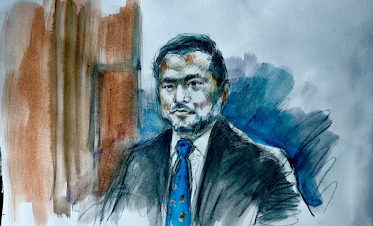4 of 5 Afzaal family members killed when a truck struck them in London, Ont., in 2021

Warning: This story contains distressing details.
A manifesto titled "A White Awakening" that was written by Nathaniel Veltman, who's accused of killing a Muslim family in London, Ont., on June 6, 2021, outlines his hatred of Islam and opposition to multiculturalism and mass immigration.
The jury at the accused's murder-terror trial in Ontario Superior Court in Windsor heard excerpts from the multi-page document on Wednesday afternoon. The excerpts were read into the record by Crown prosecutor Sarah Shaikh.
"Below are my political views for whoever is interested," the document begins, and goes on to say "multiculturalism doesn't work" because "different cultures have different interests."

The manifesto was created on May 4, 2021, the jury heard, as a document called idk.txt and was later renamed awhiteawakening.txt. It was opened, edited and added to several times, court was told.
The document was among contents found on the accused's laptop, Windsor police Sgt. Liyu Guan, a digital forensic investigator, has testified. Guan analyzed the contents of the laptop, the accused's cellphone, two USB thumb drives and an external hard drive.
- Jurors learn what a forensic examiner found in laptop of accused killer of a London, Ont., Muslim family
Veltman is charged with four counts of first-degree murder and one count of attempted murder, as well as related terror offences. He has pleaded not guilty. Prosecutors allege he was motivated by far-right ideology to conduct the killings.
Five members of the Afzaal family were walking in northwest London when they were struck by the accused's truck, a fact that is not being disputed by the defence.
Yumnah Afzaal, 15, her parents Madiha Salman, 44, and Salman Afzaal, 46, and family matriarch Talat Afzaal, 74, were killed. A nine-year-old boy survived.
Veltman was arrested minutes after the attack and the jury has heard he told a 911 dispatcher, "I did it. I killed those people," prior to being arrested.
Judge gives jurors direction
The accused also wrote in the manifesto: "I am a white nationalist. White nationalist is simply wanting to preserve European existence, nothing more, nothing less."
The document calls out "globalist companies and corporatists" as well as "cancel culture," and urges the building of a society where "all white people have a sense of belonging, from the lowest blue-collar worker to the highest professional and members of government."
It says white people are "facing genocide," "complete replacement" and crimes committed by Muslims, and argues for a "collective resistance to the anti-white hatred."

The document includes the ending, "Europa Arises!" That's similar to the ending of another manifesto, which the jury heard about on Wednesday, that was written by a mass shooter in New Zealand in 2019 and wrapped with, "Europa Rises!"
Justice Renee Pomerance reminded the jury that views expressed in "A White Awakening" cannot be used to convict the accused.
"I expect that you will find the views expressed in this document to be offensive," she said. "I remind you that you must not find the accused guilty merely because you find his viewpoints disturbing.... You must not find the accused guilty because you wish to punish him for those views or because you want to take a stand against racism."
Instead, the jury must "carefully and dispassionately" evaluate the evidence without emotion, bias, sympathy or prejudice," Pomerance said.
Other manifestos found on thumb drive
Earlier Wednesday, the jury heard about other items found on the accused's electronics.
About four months before he struck the Afzaals with the pickup truck, he downloaded a video of a mass shooting in Christchurch, New Zealand, and the manifesto of the man responsible, Brenton Tarrant, that's titled "A Great Replacement."
The 74-page manifesto and the video of the mass shootings at two mosques where 51 people died were found on the accused's thumb drive, downloaded on Feb. 15, 2021.
Windsor police Sgt. Liyu Guan, a digital forensic investigator, testified Tuesday about the electronics found in Veltman's apartment.
According to data taken from the drive by forensic investigators, the accused watched the shooting video at least 17 times and opened the Tarrant manifesto at least 12 times.
In mid-April, just before 4 a.m., the accused also downloaded the manifesto of Anders Breivik, a convicted terrorist who detonated a car bomb and then committed a mass shooting at a summer camp, ultimately killing 77 in Norway in 2011.
Later Wednesday, the defence did a quick cross-examination of Guan before ending for the day.
The trial, which is into its fourth week of proceedings, continues Thursday and is expected to last eight weeks.



































